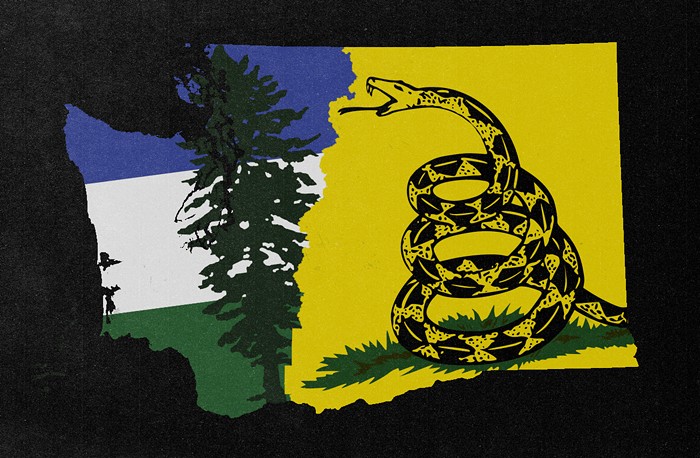
Among the many stories emerging from the gigantic Mueller Report (that I am still reading) is the story of White House Counsel Don McGahn and what he decided to do after the President asked him to "do crazy shit."
As the Mueller Report details:
On Saturday, June 17, 2017, the President called McGahn and directed him to have the Special Counsel removed. McGahn was at home and the President was at Camp David... McGahn recalled that the President called him at home twice and on both occasions directed him to call Rosenstein and say that Mueller had conflicts that precluded him from serving as Special Counsel.
In other words, the President instructed the White House lawyer to call Rod Rosenstein and instruct him to fire Robert Mueller.
The report goes on:
On the first call, McGahn recalled that the President said something like, "You gotta do this. You gotta call Rod." McGahn said he told the President that he would see what he could do. McGahn was perturbed by the call and did not intend to act on the request. He and other advisors believed the asserted conflicts were "silly" and "not real," and they had previously communicated that view to the President. McGahn also had made clear to the President that the White House Counsel's Office should not be involved in any effort to press the issue of conflicts. McGahn was concerned about having any role in asking the Acting Attorney General [Rod Rosenstein] to fire the Special Counsel [Robert Mueller] because he had grown up in the Reagan era and wanted to be more like Judge Robert Bork and not "Saturday Night Massacre Bork." McGahn considered the President's request to be an inflection point and he wanted to hit the breaks.
In other words, McGahn thought to himself: This is some Nixon shit. I'm not doing that.
When the President called McGahn a second time to follow up on the order to call the Department of Justice, McGahn recalled that the President was more direct, saying something like, "Call Rod, tell Rod that Mueller has conflicts and can't be the Special Counsel." McGahn recalled the President telling him "Mueller has to go" and "Call me back when you do it." McGahn understood the President to be saying that the Special Counsel had to be removed by Rosenstein. McGahn recalled that he had already said no to the President's request and he was worn down, so he just wanted to get off the phone.
God, can you imagine if the President were calling you repeatedly insisting you do something you know is against the law? Something that would constitute obstruction of justice?
McGahn recalled feeling trapped because he did not plan to follow the President's directive but did not know what he would say the next time the President called. McGahn decided he had to resign. He called his personal lawyer and then called his chief of staff, Annie Donaldson, to inform her of his decision. He then drove to the office to pack his belongings and submit his resignation letter... Donaldson prepared to resign along with McGahn.
That evening, McGahn called both Priebus and Bannon and told them that he intended to resign. McGahn recalled that, after speaking with his attorney and given the nature of the President's request, he decided not to share details of the President's request with other White House staff. Priebus recalled that McGahn said that the President had asked him to "do crazy shit," but he thought McGahn did not tell him the specifics of the President's request because McGahn was trying to protect Priebus from what he did not need to know. Priebus and Bannon both urged McGahn not to quit, and McGahn ultimately returned to work that Monday and remained in his position. He had not told the President directly that he planned to resign, and when they next saw each other the President did not ask McGahn whether he had followed through with calling Rosenstein.
In a weird twist, McGahn being insubordinate to his boss, not listening to Trump's repeated demand to obstruct justice, actually ended up helping Trump, because in this case, arguably, justice was not obstructed, because of McGahn's insubordination!
As Mueller reports: "After the media reported on the President's actions, he denied that he ever ordered McGahn to have the Special Counsel terminated and made repeated efforts to have McGahn deny the story."
That lying liar.
These details come from pages 297 to 302 of this PDF of the Mueller report. (Everything related to obstruction of justice is in volume two of the Mueller report, and at the beginning of volume two all the page numbers start over, so the page numbers for these relevant pages appear as 85 to 90 on the pages themselves.)
The President trying to get McGahn to call Rosenstein to get Mueller fired is just one of ten instances of potential obstruction of justice outlined in the report.
Frustratingly for people like me who would like Trump to face actual consequences (for once in his life), Mueller decided that because a sitting president cannot be indicted or brought to trial, it would not be fair to charge him with any crime (like obstruction of justice), because the defendant (the President) would not be able to defend himself, because there would be no courtroom in which to do that (as if Trump needs a courtroom to defend himself), therefore Mueller could render no verdict. But he makes it clear in the report that these are the facts, and that after Trump is no longer president, he could face any or all of these obstruction charges.
As Mueller writes with his particular madness-inducing equanimity: "While this report does not conclude that the President committed a crime, it also does not exonerate him."















